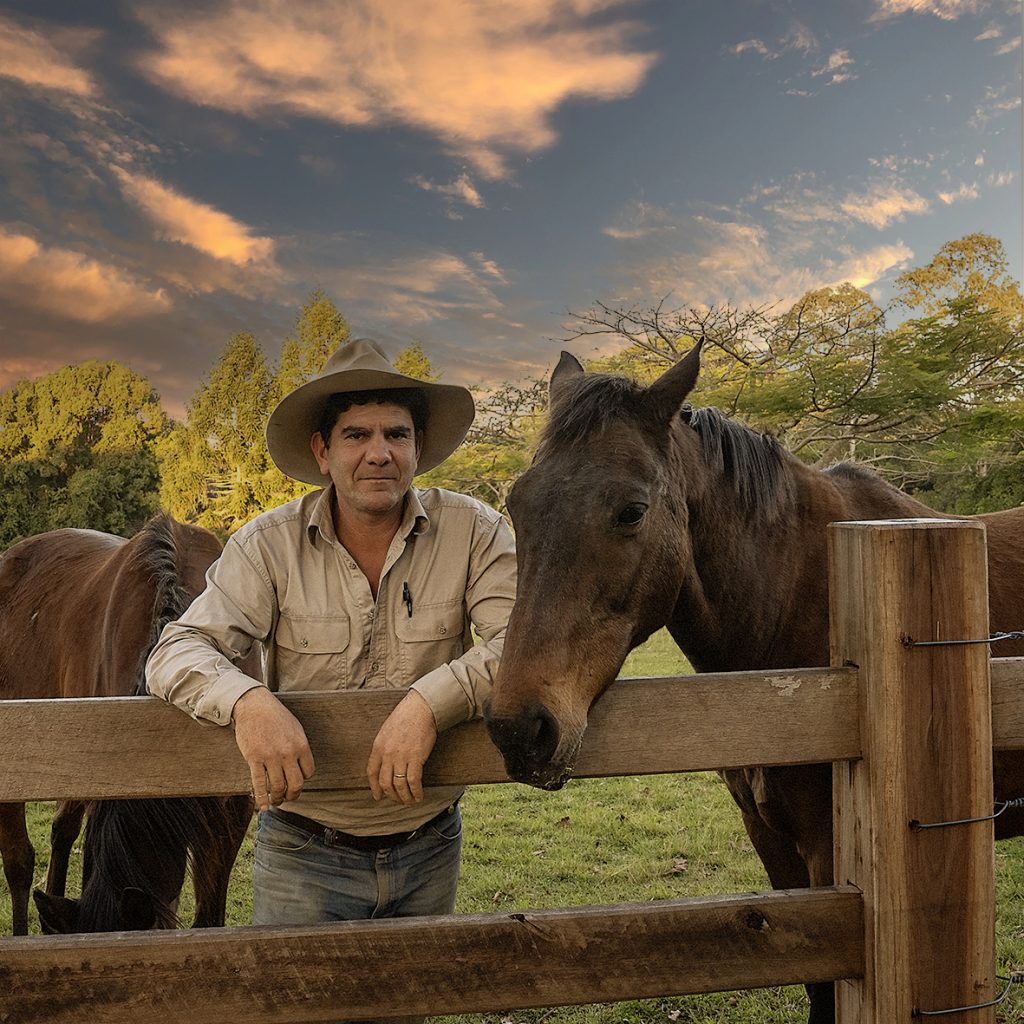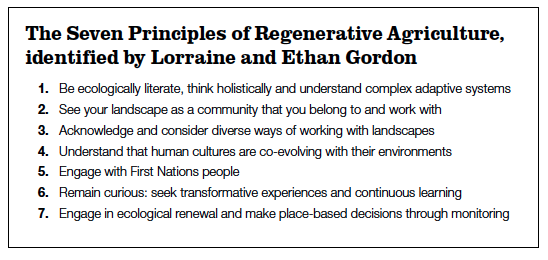
Dave Eastwell manages farms at Possum Creek. A motor mechanic by trade with a broad range of skills, he can fix and repair things. He’s got a good seat on a horse and well understands livestock. Quietly spoken, with a ready smile, he grew up on a cattle property on the Darling Downs. He can turn his hand to just about anything that happens on a farm. This is the sort of bloke you can reply on in a pinch.
Medical specialists Bob Lodge and Penny Hall bought their 128-acre property, Paddy Melon Ponds, in 2002. On moving up from inner city Melbourne, Bob, a consulting physician, and Penny, an anaesthetist, opened a specialist medical consulting centre in Granuaille Road. Their dream was to find a better work-life balance while also becoming primary producers.
After some research into what to grow on their land, the couple focused on breeding quality Charolais beef cattle. At the recommendation of local farmer Gary Jarrett, they engaged Dave as their farm manager 10 years ago. Dave, having lived in the area with his family for 21 years, had been managing a coffee farm outside Federal. Now he and his family live on-site, where Bob and Penny can call on him at any hour to deal with farm matters.
“We made a decision that we want to die on this land,” said Bob. “We want to try and leave it in a better state than we found it. We see ourselves as its custodians.” As doctors, they are aware that one in four farmers takes their own life, so understand the pressures of farming. “The idea of regenerative farming appealed to us,” Penny continued. “Rather than the big, more industrial-sized farms, a smaller business can be more sustainable, managing both the land and its ecology.That’s the true meaning of regeneration.”

Regenerative Agriculture principles include small cell grazing and frequent stock rotation; minimal use of herbicides and chemical fertilisers, and the introduction of native grasses and mixed species pasture. When Southern Cross University (SCU) initiated a B.Sc. in Regenerative Agriculture four years ago, Penny jumped right in. “The course is putting science into what farmers do, putting academic muscle into Regenerative Agriculture,” she said, not denying there are ‘naysayers’ – essentially from chemical companies.
SCU regen ag students are taught about farming practices that better support natural processes, covering soil degradation, water, land management and crop sustainability, while utilising the university’s “expertise in plant science, agronomy, ecology, agroforestry, environmental chemistry and socio-ecological systems, working in collaboration with industry groups and the farming community”.
Penny adds: “The whole focus of regenerative agriculture is to improve the soil and its water holding capacity, the microbiome and micro-diversity, leading to more plant diversity. Here, we breed cattle for the beef cattle market, aiming at bovine biodiversity.”
Compared with traditional farming practices, Dave says there is overlap. “You can see so much more clearly the harmony between plants and soil. There’s such a short-sightedness about relying on chemical use, it becomes self-evident. It’s a bit like a political party: we’re looking at the long-term results and reducing chemical input, not using chemicals for short-term productivity.”
Six years ago, ecological farming entrepreneur Joel Salatin drew Penny’s attention to Regenerative Agriculture. “His philosophy is developing sustainable, small acre farming, resulting in a high-quality product and low food miles.” The couple hosted him on a visit to the Shire, where he made it clear that “farming doesn’t have to be on an industrial scale to be profitable.”
Since Bob, Penny and Dave (and his family) all live on the Paddy Melon Ponds farm, they each feel they have ownership of the land. Where for more than 100 years, much of rural Bangalow was dedicated to dairy farming, today, their land has diverse uses. As well as breeding beef cattle, eventually for the local community, they also plant native trees for landscape gardening, and grow citrus – such as cumquats, to be used in gin distilling.
On the weekend of September 9-10, Paddy Melon Ponds will be hosting a workshop with Glen Chapman on holistic whole-farm management, supported by Byron Shire Council. It will include a formal presentation, plus hands-on engagement. For details, contact Andrew Cameron, Council’s agricultural extension officer, at ancameron@ byron.nsw.gov.au
Rural land makes up nearly 95% of Byron Shire, Council’s website says, “and supports a diversity of land uses, including farming, environmental protection, tourism, rural industries and housing.”
According to a 1906 report in the Sydney Morning Herald, after cedar cutters cleared the Big Scrub in the 1880s, 350 dairies emerged around Bangalow and the Northern Rivers. Each farm averaged 40 hectares, with a total of 28,250 dairy cows and 800 bulls “representing great wealth” at the time. Dairy farming peaked in Bangalow in the 1930s, when Northern Rivers dairies produced 60% of NSW butter. Today, land costs here are massive, and scarcely a handful of dairies survive. So just how and what can would-be farmers farm in this fertile, subtropical environment? How best to manage this expensive resource?

Christobel Munson